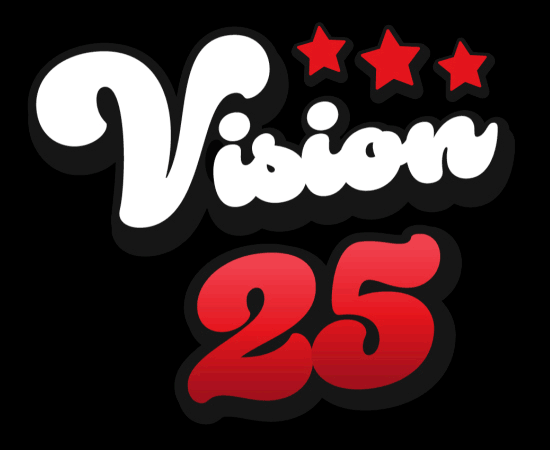Search Engine Optimization (SEO) can be a daunting task for anyone who doesn’t have a background in marketing. SEO is how you get your site or business found. While following the basics will almost always be the right choice, there are tricks which can help an MSP get an edge over the competition. Let’s look at the 13 easiest things you can do for your MSP (though a lot of this advice applies to most businesses) to improve organic SEO.
Keywords
When someone performs a search, they use keywords or important terms to try and find a specific result. This is the foundational concept behind how a search engine works. Keywords used to live in special tags or be derived from the title, but computing has grown and search algorithms have gotten exponentially more complex. Almost everyone is familiar with keywords, but how they work has changed substantially. Keywords don’t just live in a title or a tag, they live in the content.
1. Targeted Keywords
What does your page or solution provide and how would a prospective client find it? This is the most important question to answer before even starting to create content. Once you have an answer, you can begin planning keywords which are relevant. For instance, if you’re writing about backups, you want to target the core keywords for backups, but also the specific keywords which help qualify your article.
We use terms like backup, BDR, and disaster recovery to cast a wide net for generic information on backups. This isn’t enough though, we want to get some of the long-tail searches even if they’re tangential. We work in terms like cloud, on-premise, virtualization, tape, etc. to make this content more appealing to more search users (and ideally anyone reading as well). Target keywords, but make sure they’re relevant to your content. This is the foundation to everything you do with SEO for any content.
2. Use Synonyms
You may have noticed that a lot of those keywords I mentioned seem a bit redundant. Backups and BDRs are arguably the difference between rectangles and squares. A search engine algorithm might use synonyms to help a user direct their search, but an exact match is still worth more. Pepper in synonyms and similar terms where they fit to cast a wider net.
This is especially important for MSP’s since your client may not always know what to search. They don’t necessarily know what DRaaS is before they talk to you, but they do know what they want (or at least have an idea) when they search (and it may be as vague as “to have backups”). The more generic or simple terms you can work in (especially early on) the more likely you are to get and retain a prospective client. Spicing up terms benefits more technical content as well.
Links
Inbound and outbound links can influence search rankings. Who you link to, and who links to you will impact your search engine ranking. Links are still important, but link farming (arbitrarily putting links on sites, or link farm sites to manipulate search rankings) is a quick way to get dropped. How can you squeeze an extra ounce of link juice (the value of a piece of content based on inbound links) out of your content without crossing a line?
3. Internal Links
The quickest and easiest way to increase link juice (which improves your SEO) is to link to your own content. You can’t just spam the same links or random links; they have to fit the content. Internally referencing your own blog or assets (in a way which contextually fits) is an extremely easy way to get an edge without any real downside.
Got an article explaining what something is? Link to it on other pages where you use the concept. Don’t be afraid to edit older content to add links to newer articles. This gives clients (or peers) a way to dig deeper and stay on your site while (ideally) deriving value.
Content
Modern search engine algorithms don’t just look at keywords and titles, they look at the entirety of the content and everything on the page. The main “trick” to good organic SEO is to just make better content. What question does your content answer and for whom? While good content is the main key to good SEO, that doesn’t mean there aren’t things you can do to improve the odds or make content shine even more.
4. Clearing Assets
Any asset which you use needs to be legally obtained or applied (the license matters). You can’t just download an image off the internet and use it. This seems like it would be common sense, but there are countless people who don’t follow this rule. If you used to do it before you knew better, fix it now.
It’s arguably content theft, but to top it off, it will hurt your SEO. It can also get you dropped entirely or even a DMCA takedown notice. Clear all assets you plan to use and make sure you have them licensed or use something with a free or public domain license. Attribution is also important depending on the license.
5. Subheadings and Organization
Headings, subheadings, and their organization can also impact SEO. The “ideal” at present is between 100 to 300 words per subheading for most content. These little changes in organization can enrich the keywords a search engine picks up on and in turn increases your SEO.
Most search engine algorithms give preference to content which is emphasized in some way. The most common way to do this is via test markup like em or strong tags, or h header/title tags. Make sure you highlight things which are important. You don’t even need to rewrite the whole thing. A little extra organization of content and subheadings leads to a boost in SEO.
6. Content Consistency
A bad verse in an otherwise great song can ruin the whole thing. Likewise, inconsistent quality can be as bad as consistently bad quality. Having poorly written content and keeping it for a misguided attempt at optimizing keywords or similar hurts your SEO. This can be a paragraph or a page.
This isn’t a judgment on your writing, but what content do you have which is (or has since become) wrong? An article about Windows Server 2003 won’t hurt anything, but an article about best practices for wireless security from the days of WEP will. It isn’t just dated, it can be harmful.
If everyone who Googles “best MSP near me” clicks your page and jumps to the next result because the content sucks, Google’s algorithm takes notice. If some of your content is bad, it can tarnish the rest too though. Where a reader lands can be as important as whether they even click. If content doesn’t work anymore, pull it. Make sure that the content you have stays consistent with the message you’re trying to broadcast to your clients without confusion.
Content Length
A long article has a different impact on SEO than a short article. A short article weekly has a different effect on SEO than a long article sporadically. You can create countless comparisons but the rule of thumb is that more is usually better. More content more often, or more words on a single article.
7. The Magic Word Count
Most search engines hit a soft SEO plateau around 1,000 to 1,500 words. The bigger ones tend to favor a bit more, usually 1,200 or more is ideal. Google, Bing, and basically any other modern search engine is going to reward you for longer content, you just hit diminishing returns from it.
The one thing to take of note of though is that substantially less than 1,000 word articles (say around 800 or less) tend to be worth less for SEO. Some content doesn’t need to be that long and trying to force it just harms it (like a contact page). SEO rules, especially this one, tend to be a bit like English spelling rules. The rule applies until it doesn’t.
Conclusion
SEO is SEO in any industry, the difference is how valuable a specific factor is over another. These tools and techniques work as basic tools for all kinds of specific SEO. A local business will benefit less from a global presence. One of the big differences for SEO for an MSP is the focus on both local and general reach.
You want your company to be the first result locally for prospective clients, but you also want vendors and other businesses to be able to find your site. These give you opportunities for growth and development of your business.


